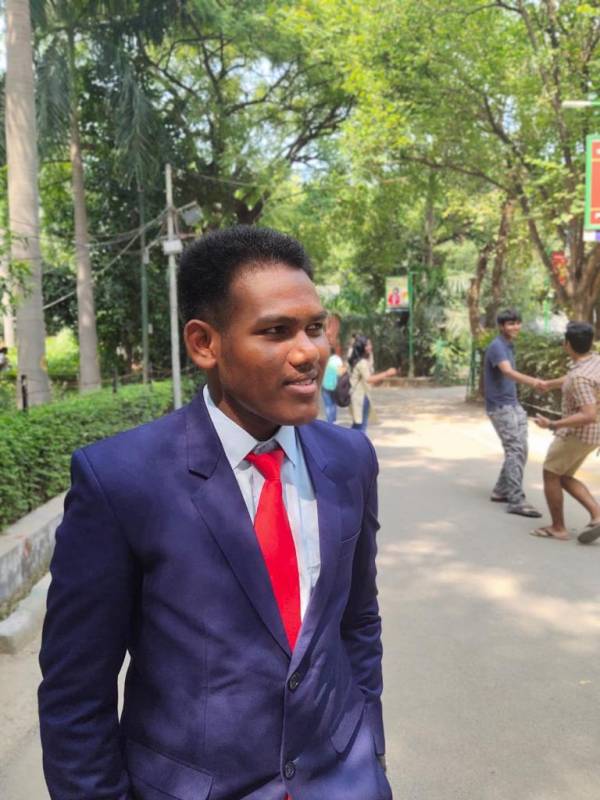Success story: He lived in a roadside tent but made it to Delhi University
By Amritha Mohan
Hyderabad: From a small tent in a remote village of Telangana to Delhi University: that sums up the journey of 19-year-old Enabarla Raju. Hailing from Inole under Achampet Mandal in Nagarkurnool district, Raju’s life is proof that hard work, along with the right opportunities, can go a long way in reaching great heights in life.
“It was not an easy journey, it’s never been, and it will never be so for me, at least until I achieve the social and political capital that the privileged ones have in this country,” says Raju, who comes from one of the most marginalised communities in the state. To get admission into a premier course in Delhi University, while juggling jobs, and struggling with homelessness and caste discrimination on one side, is no easy feat.
“My father told me not to go to Delhi because he didn’t have money to fund my education. I couldn’t do engineering because I didn’t have money. But I wanted to study, land a job, make a house for our family. And for my education, he didn’t have to pay a single penny because it was funded by the Telangana Social Welfare Society,” said Raju.
Although it’s been two years since he enrolled in his B.Sc Mathematics Honors course in Hindu College, Raju says the memories of his hardships remain afresh. While he was a kid, he would go for daily wage labour – either construction work or in the fields – to earn around Rs 50-100 per work. He would either save this up or give it to his family. “This is the story of not just me, but all the marginalised communities in our state. I am lucky because I have made it to a top educational institution in the country. Everyone should get access to the facilities that I got,” says Raju.
'DU colleges are casteist'
Uprooting himself from a village in Telangana to a metropolitan city like Delhi was the first shocker for him. Add caste discrimination into this equation, and it is a recipe for disaster. However, Raju says he has learnt to overcome taunts from people. “You get used to it after a point of time. You learn to fight and overcome those challenges,” says Raju about how caste and class discrimination was a daily affair in the college.
In a context where student suicides like Rohith Vemula’s are being termed institutional murders, Raju’s experience highlights how caste is one of the modes that determine how you socialise in educational institutions. “My college is completely based on caste. The upper-caste ones don’t really talk to us, even if we try to mingle with them. They might be thinking why would they go to someone who is ‘lower’ than them. Even teachers show this partiality. But now I’ve learnt to take all this with a pinch of salt,” says the student.
Taking learning upon themselves
Students like Raju who have benefitted from the Telangana Social Welfare Residential Educational Institutions Society (TSWREIS) schools, with continued exposure to more opportunities, are an inspiration to others, says Dr. R S Praveen Kumar, IPS officer and secretary of TSWREIS.
“Our community usually migrates from place to place, in search of labour. We don’t have homes. I stay in a hostel. Now, we are aware that you will succeed in life if you have the education and social capital. We have also begun a group in the college called Ambedkar Yuvajana Sangham through which we have taken it upon ourselves to train for civil service exams. Hopefully, we will succeed,” says the DU student, signing off with a smile.